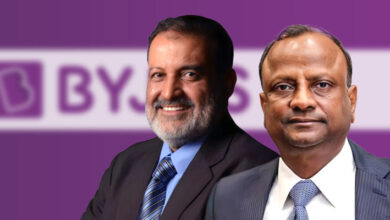The NPE team at Meta invests in emerging markets, has offices in seed stages, and takes a global perspective.

The NPE team at Meta invests in emerging markets, has offices in seed stages, and takes a global perspective.
A new emphasis is placed on the NPE team’s Meta (formerly Facebook) experimental app division. As of mid-2019, the company created the group to develop consumer-facing apps for testing new features and seeing what people think.
From dating and calling apps, to meme-makers, to TikTok, Twitter, and Clubhouse competitors, to apps for couples, the primarily Menlo Park-based company has tried a variety of experiments over the years.
Now, NPE will be testing a new hypothesis: that the next big idea may come from an international market.
It recently opened an office in Lagos, Nigeria, and will shortly open another in Asia to capitalise on that potential. Also, it is reconsidering its strategy to include investments in small, entrepreneurial companies at the seed stage.
Checks have already been written in this regard. Meta recently invested in Inworld AI, a developer platform for creating virtual characters built upon artificial intelligence.
However, future checks may go to companies with less metaverse potential to take advantage of the mobile internet in new ways – such as startups.
Metaphilosophy recognises that many of today’s universal experiences emerged from niche communities.
Before it was adopted globally, WhatsApp was popular in regions where SMS text messaging wasn’t free. East Africa lacked legacy payment systems, which led to some mobile money innovations.

Meta’s NPE team has begun looking outside Silicon Valley for future opportunities like this to ensure it doesn’t miss out.
Ime Archibong is heading up Meta’s New Product Experimentation (NPE) team. He has worked for Meta for 11 years and has experience working on Facebook’s developer platform before joining NPE.
As part of this role, he visited entrepreneurs both small and large worldwide. NPE has taken the same direction since Archibong joined two years ago.
In essence, it’s the same type of work I did for the last decade, which involved finding talented entrepreneurs and small teams and providing them with resources – time, talent and technology – to develop their ideas.
“It’s important to realise that some of the seeds of the ideas that we’re able to cultivate may become very big at some point.”
When the team pursues this new direction, it will target Asia, Africa, and Latin America markets, though it isn’t abandoning U.S.-based projects entirely.
Those projects, however, will be different in some ways. In addition to launching and quickly shuttering social apps that don’t succeed, NPE’s current set of experiments includes one that assists incarcerated U.S. citizens in reentering society and another that helps LGBTQ families looking for kids.
As NPE’s scope grows to include the global stage, the organisation will increasingly focus on ideas that begin small and have the potential to scale – perhaps even addressing underserved markets.

“The future will be built in some of these historically overlooked and undervalued regions of the world,” Archibong said.
According to him, solutions to the problems, opportunities, and new experiences will be developed by the closest people to the communities they are trying to serve.
And these solutions will be “more durable, more sustainable, and more viable” in the long run.
History has already proven this thesis true, so it sounds solid enough on its own. Although, Meta’s account of “borrowing” ideas from smaller companies poses whether the global entrepreneurship community will welcome it.
Meta has grown Stories into a much larger product by copying Snapchat’s Stories.
NPE Meta Features
Recently, Meta launched a Bitmoji app. In addition to its Clubhouse, TikTok, Nextdoor, and Substack clones, it is expanding the services it offers.
Even a startup called Phhhoto issued Meta for promising it a partnering opportunity, then just deciding to build on Boomerang, which started with Phhhoto’s technology.
While Meta didn’t copy, it acquired – whether it was an up-and-coming competitor like tbh or Moves or a future rival like Instagram, WhatsApp or Giphy.
While many seed-stage startups may feel comfortable working with Inworld AI because of how closely their missions align in VR, others might not.
Nevertheless, Archibong believes that enough people will take advantage of the opportunity.
“I believe that opportunities like that will increase with AI in Inworld. Working with us would be like working with an organisation that shares their mission, one that might also be fascinated by similar technology trends, or emerging platforms, or user behaviour,” he explained.
According to Archibong, the company hasn’t said how much capital it plans to invest over how long, but the checks – like the teams themselves – will be “really, really small.”





